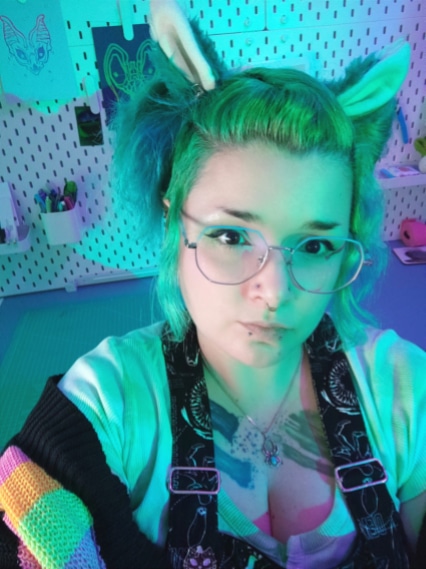How bisexual erasure makes it tough to come out
I’m Jemma Stovell, a Recovery Coach for Step Together. I am many things – some I’ve always known. I’m creative, I’m stubborn, I’m kind, I’m curious and I’m proudly colourful and happy to display my personality outwardly. Later in life I’ve also realised I don’t think about some things in the same way many others do. Partly because they weren’t talked about, or widely understood, as they were for me when I was growing up. One is that I was born with ADHD and the other is that I’m bisexual – someone who is emotionally, romantically, or sexually attracted to more than one sex, gender, or gender identity, though not necessarily simultaneously, in the same way, or to the same degree. Both were very misrepresented in the 90’s, which is something the young me didn’t realise.
Bi erasure and heteronormativity
The rhetoric when I was a kid was that it was normal to experiment with your sexuality, but that it was a phase. My friends might practise kissing their female friends, so they were ready for when they found a boyfriend. Dating them? Not considered. If you liked boys, well you’re not a lesbian are you? Gross. Gay? An insult. So what’s left? Be normal, which boy do you have a crush on? Kissed a girl on a night out? Not cheating, it doesn’t count.
The year before I was born, unbeknownst to me, Section 28 was passed in parliament. It prohibited the promotion of homosexuality by local authorities including schools. As a result I wasn’t taught about sexuality (or gender) in school. I learned in the playground instead. For the majority of my school years I didn’t know that many other sexualities other than homosexual existed, and definitely hadn’t considered that they may apply to me. By not promoting homosexuality, schools taught us that gay was bad, and straight was what was left. We still feel the impact of this today. If we haven’t chosen to re-educate ourselves, we keep the knowledge and opinions of our elders. Think of a wedding – man and wife, obviously. Heterosexuality is still the default, it’s normal, it’s expected and comfortable.
Thankfully, along came the internet, where I learned that the rainbow has so many more colours. I became a fierce ally. I went to Pride marches to stand up for my friends. It still took me a long time to realise I’m right there with them. Why? Even within the LGBTQ community many bi people are expected to “choose”, or be “more gay or straight”, or a lesbian may decide she doesn’t want to date bi women as they aren’t committed. People can find the lack of clarity hard to understand. I’m in a long term relationship with a man, so we appear straight, or I must be more straight, or I must have settled. In reality I often feel I chose him despite his gender. I chose him for so many other reasons.
So I let people assume I’m straight, it’s just easier. I’m so many other things too. My bisexuality essentially erased and rarely considered. Heteronormativity continues. Could I challenge this? Yes, but I’m tired.
Coming out as a bi person
Is there any point? It doesn’t feel important, I don’t have the energy to do it over and over again and deal with the questions that follow. There was never a big sit down chat with my parents, or a party with banners. It didn’t seem important enough, I’m settled with a man anyway. I’ll just leave things as the occasional hint in normal conversation. I don’t want a fuss. I’m so many other things. I’ll let people assume. This is what society expects.
I’m so grateful to work in the most open and inclusive workplace I’ve been a part of so far. I can finally put on clothes every day that I feel myself in. I can express opinions and give feedback that’s taken seriously. I feel respected and valued by my colleagues and management. I’m still not sure I’d want to have a conversation about my sexuality with more than a few of my colleagues. We still have work to do.
I’m hopeful for future generations. They have so much more opportunity to learn earlier and embrace who they are fully from the get-go. One day, maybe, heterosexual won’t be the norm. Bisexuality won’t be a phase. Maybe even people questioning their gender won’t be a phase, we’ll see.
What have you assumed today?

